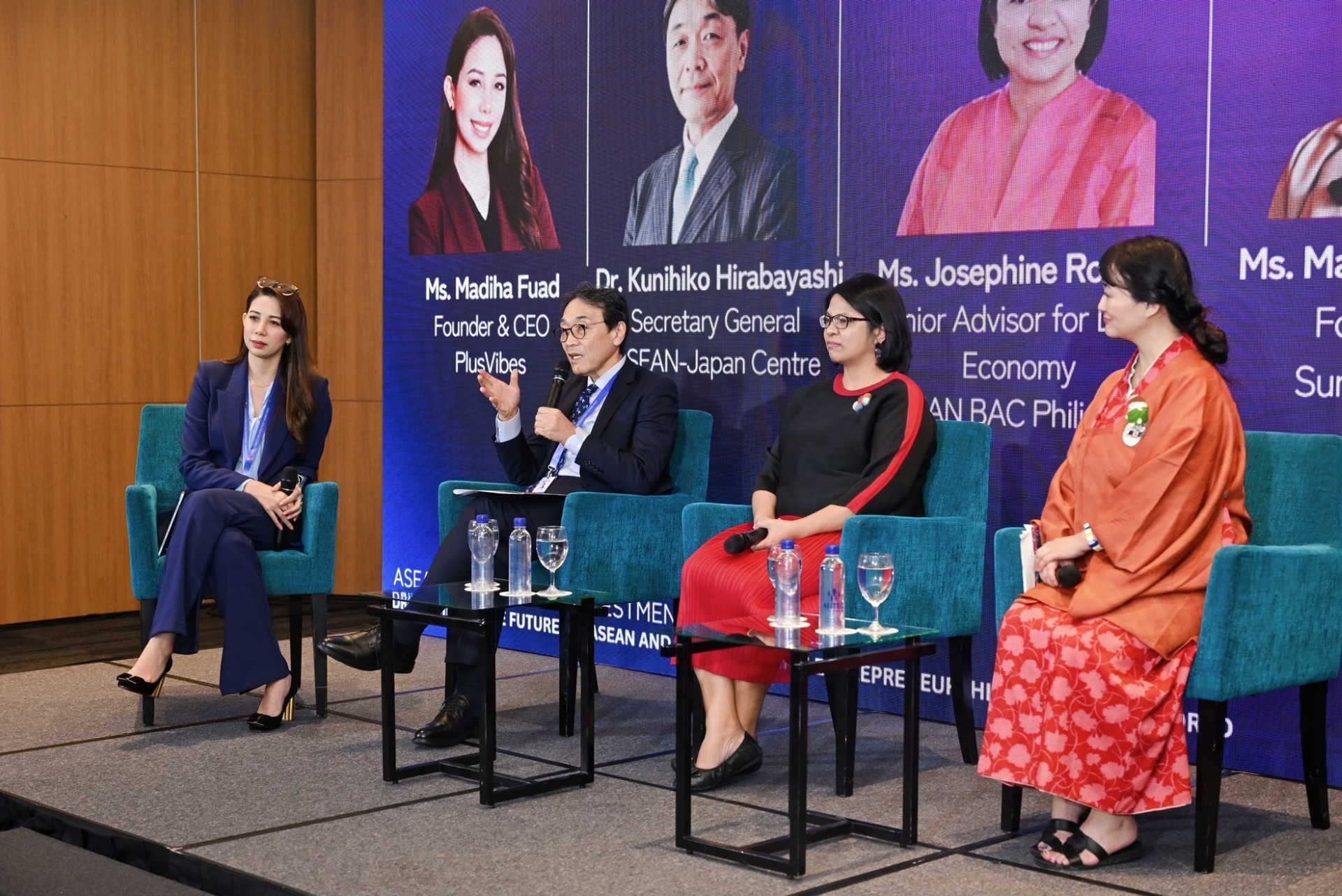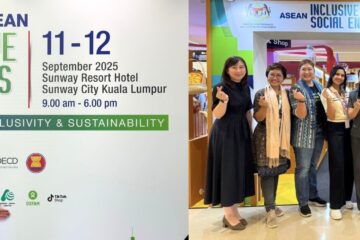Executive Summary
The ASEAN-Japan Centre (AJC) participated in the ASEAN Business and Investment Summit (ABIS) 2025 in Kuala Lumpur, aligning with Malaysia’s ASEAN Chair theme of Inclusivity and Sustainability. By co-organizing a high-impact side event on women’s entrepreneurship and digital transformation, AJC reinforced its long-standing commitment to advancing inclusive digitalization, strengthening ASEAN–Japan cooperation, and shaping a people-centred and sustainable future.
Introduction
Supporting Malaysia’s ASEAN 2025 Chair, AJC joined ABIS 2025 on 25–26 October in Kuala Lumpur. This engagement is part of AJC’s FY2025 annual programmes to promote inclusive, human-centred, and sustainable growth across ASEAN and Japan.
Objectives and Goals
AJC aimed to deepen regional dialogue on how digital innovation and inclusive investment can expand opportunities for women entrepreneurs in ASEAN and Japan. The session sought to highlight scalable solutions, encourage cross-border collaboration, and reaffirm AJC’s commitment to a “Just Digital Transformation”—ensuring technology serves people and communities.
Activities and Highlights
AJC successfully co-organized the session “Driving Inclusive Futures in ASEAN and Japan: Women’s Entrepreneurship in a Digital World” together with the ASEAN Business Advisory Council (ABAC) Philippines.
The session was professionally moderated by Ms. Madiha Fuad, Founder and CEO of PlusVibes and ASEAN Women Entrepreneur of the Year 2024.
Distinguished speakers included:
- Ms. Josephine Romero, ABAC Philippines
- Ms. Marie Asami Fukase, Summys Ventures
- Dr. Kunihiko “Chris” Hirabayashi, Secretary General, AJC

With the participation of ABAC Philippines Chair Mr. Joey Concepcion, the panel explored two key themes:
- Inclusive Tech & Innovation, and
- Digitalization for Women-led MSMEs.
In his opening remarks, Dr. Hirabayashi emphasized that digital transformation is not about technology but about people. Drawing from his earlier career as a heart surgeon, he noted that “life continues when connection is restored,” underscoring the human dimension of ASEAN–Japan digital partnership.
Ms. Romero emphasized that exposing women-led MSMEs to digital tools, along with providing appropriate training, is essential. With the right training and information, they can better understand the risks of digital platforms and strengthen their capacity to use them safely and effectively.
Ms. Marie highlighted how AI can serve as a powerful tool for women entrepreneurs to drive innovation, expand market reach, and strengthen business efficiency. She also emphasized the importance of cultural exchange, noting that women can leverage cross-cultural understanding to enhance their business presence, build trust, and create more meaningful connections with customers and partners.
The session also showcased AJC’s more than 15 years of support for women entrepreneurs and introduced ImpactLink, AJC’s AI-enabled platform designed to strengthen financial literacy, investment readiness, and impact measurement for women-led MSMEs—addressing access barriers rather than talent gaps.
ABAC Philippines summarized the session as follows:
“This session is both substantively relevant and perfectly timed, offering an excellent platform for key partners to align their initiatives on empowering women entrepreneurs—a cornerstone of inclusive growth. It also lays important groundwork for the deeper, more impactful collaborations we aim to advance during the Philippines’ ASEAN BAC Chair in 2026.”
Key Takeaways
- Women entrepreneurs are the “untapped core” of the regional digital economy, with potential limited more by access than capability.
- A holistic ecosystem—combining finance, digital tools, networks, and supportive policies—is essential for inclusive digitalization.
- Practical approaches, such as using AI for financial literacy and impact tracking, can help women-led MSMEs scale across borders.
- Inclusive digital transformation advances both economic opportunity and social resilience across ASEAN and Japan.
Way Forward and Engagement
Building on the momentum generated at ABIS 2025, AJC will deepen collaboration with ABAC Philippines and regional partners toward ABIS 2026 under the Philippines’ ASEAN Chairmanship. The Centre remains committed to empowering women entrepreneurs, strengthening inclusive digital transformation, and advancing an ASEAN–Japan partnership rooted in people, opportunity, and sustainability.




